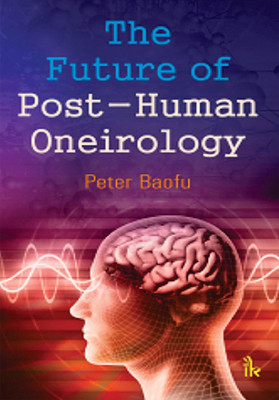The Future of Post-Human Oneirology(English, Hardcover, Baofu Peter PhD)
Quick Overview
Product Price Comparison
"Are dreams really so non-functional that Owen Flanagan (2001) once suggested that ŌĆ£dreams are evolutionary epiphenomenaŌĆØ? (WK 2014; S. Blackmore 2004). This epiphenomenal view on dreams can be contrasted with an opposing view by Sigmund Freud, who speculatively reinterpreted dreams as the ŌĆ£royal road to the unconscious.ŌĆØ (WK 2014) Contrary to these opposing views (and other ones as will be discussed in the book), oneirology (in relation to illusion and reality in dream analysis) is neither possible (or impossible) nor desirable (or undesirable) to the extent that the respective ideologues (on different sides) would like us to believe. But this questioning of different opposing views on dream analysis does not mean that oneirology is worthless, or that those diverse fields (related to oneirology)ŌĆölike neurobiology, psychoanalysis, dream analysis, cognitive science, physiology, religion, anthropology, ontology, the art, literature, popular culture, psychiatry, neurology, evolutionary biology, psychotherapy, and so onŌĆöshould be ignored. (WK 2014) Indeed, neither of these extreme views is plausible. This book offers an alternative (better) way to understand the future of oneirology in regard to the dialectic relationship between illusin and reality in dream analysisŌĆöwhile learning from different approaches in the literature but without favoring any one of them (nor integrating them, since they are not necessarily compatible with each other). More specifically, this book offers a new theory (that is, the interperspectival theory of dreams) to go beyond the existing approaches in a novel way and is organized in four chapters. This seminal project here will fundamentally change the way that we think about illusion and reality (especially, though not solely, in the context of dream studies), together with other debates as will be discussed in the rest of the book, from the combined perspectives of the mind, nature, society, and culture, with enormous implications for the human future and what I originally called its ŌĆ£post-humanŌĆØ fate. "


